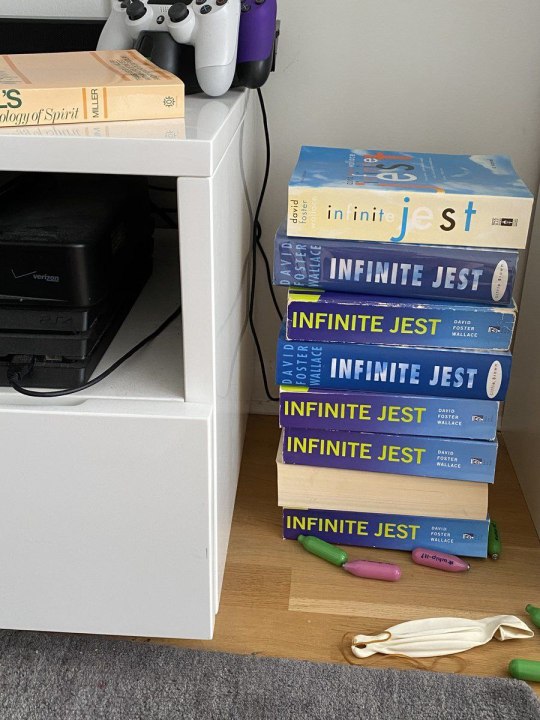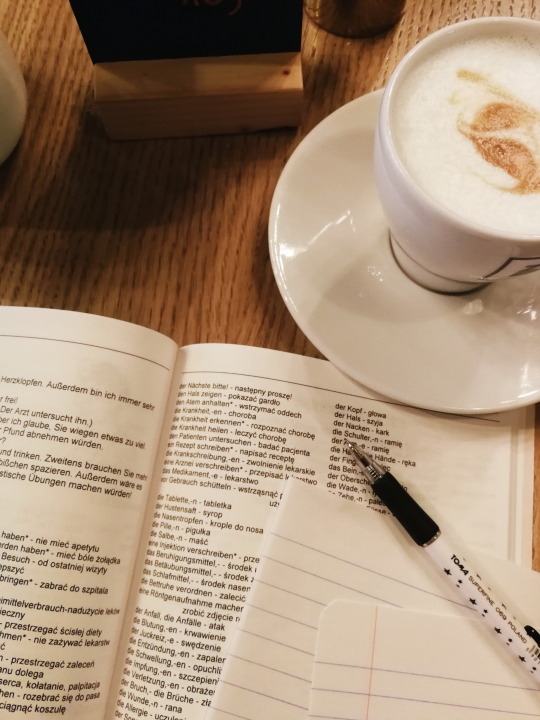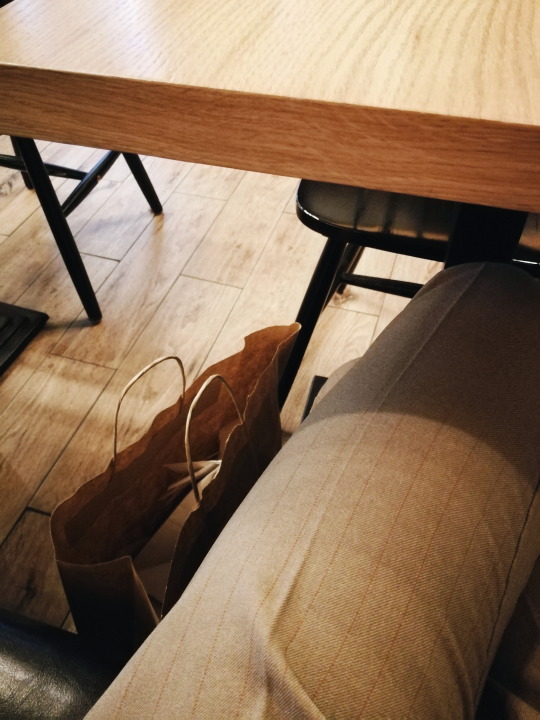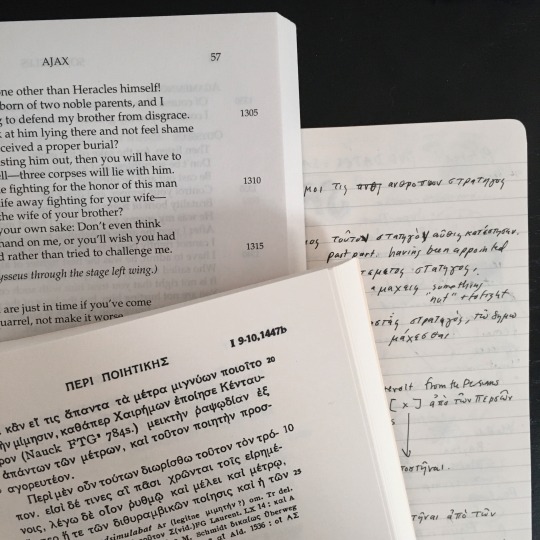black---amethyst
2K posts
ESTJ A// languages// crossfitter
Don't wanna be here? Send us removal request.
Text
I wanted to melt inside your mouth, like the ice cube of your lemon haze
To soak into your skin, like the ink of your back tattoo
To delve inside your heart, like your deepest regret
To penetrate into your eyes, like the sunlight inside your room
To run through you, like the bloodstream that keeps you alive
To talk about you as if I finally knew what love was about
- black——-amethyst
#langblr#studyspo#study motivation#inspiration#aesthetic#motivation#studysthetics#studyspiration#student#study blog#cute#studyblr#notes#motivating quotes#love quotes#life quotes#quotes#poetry#love poetry
14 notes
·
View notes
Text
being on here makes me realize that common sense definitely aint common cuz some of you are just stone cold dumb asses
18K notes
·
View notes
Video
tumblr
https://instagram.com/p/Ba2r3rnjXd6/
17K notes
·
View notes
Text
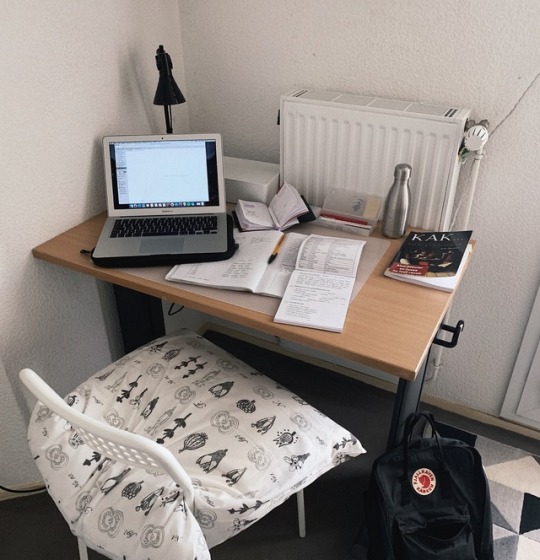
First time actually sitting down at my desk since December, love that for me
3K notes
·
View notes
Text
Changkyun can read me the holy scripture with that deep voice of his and I’d still be condemned to hell for all eternity for having unholy thoughts���
91 notes
·
View notes
Text
“Everything in the world is about sex except sex. Sex is about power.”
Oscar Wilde
286 notes
·
View notes
Photo


copying out some old book notes into my commonplace book with my fountain pen!
17K notes
·
View notes
Text
Learning Languages and How to Make it Fun
(gifs not mine, credit to the artist)


How does a child learns? Immersion
So you gotta dive deep
Find songs that you like. You don't have to understand, you just have to enjoy the song.
Listen them at least once a day. The idea is for you to get familiar with the sounds.
Once you have already heard them too many times (without getting tired of them) look for the lyrics. In their native language, not a translation.
If you can read in that language, then try reading them. Print them if you have to or write them down (this is better) and as you listen to the song try to sing.
If there's a word/sentence you like because it sounds pretty, mark it.
If there's a word you don't know how to/can't pronounce, mark it.
For example, I have a journal in which I write Japanesse Kanji that I find beautiful (whether is because of the meaning or the symbol itself is pretty)
Once you are familiar with the song look for a translation.
Check those words you have marked with the translation.
While looking for definitions it's better if you find images (so can have an idea of what that word is) instead of a definition in your language (unless is a long/complicated concept).
Movies, you must watch movies in that language. Better if they are from that country. (It can also be a doubled movie, perhaps you could look for one of your favorites)
Watch them with subtitles (in your language) once or twice. Then watch them again but this time without subtitles or with subtitles of said language. (You already know the plot, so you can still understand what's going on)
If you like to read, look for children literature. It's easy and fun.
Keep reading even if you don't understand a single sh*t. It doesn't matter.
Mark again those words you like, don't know the meaning or can't pronounce.
Write at least one sentence every day. It doesn't have to be right, it doesn't have to be long or poetic, you just gotta write.
If you still don't know much about grammar (enough to formulate a sentence on your own) then write a quote from one of those songs, movies or books you read. Again it doesn't matter if you don't understand what are you writing.
If you already know another language, try to learn the new language with that one. For example, I learn german from english instead of my native language spanish.
Videogames. In my experience this is amazing. You have no idea idea how much I learned english just from games.
You have fun playing, engaged with a story, while constantly hearing the language. You don't even have to pay attention at what they are saying, eventually you'll figure it out. It's very intuitive.
And because games, usually, requires that you spend many hours playing you will have a lot of practice without actually studying.
Some games, if you look on the settings menu, even have other languages instead of english. For example I played Assassin's Creed Brotherhood in italian and french and AsC III in russian and japanese (the voice actors are fantastic).
Seriously, videogames are freaking amazing for learning.
The idea of this, is that you can imitate the learning process a child does, while also having fun and enjoying it. Kids learn by making mistakes, by playing with words and by being constantly surrounded with the language. At first, kids have no idea what they are doing, they just repeat what they see and hear. So it's okay if you don't know what are you doing, take that pressure off. This is not school/college, this is just you trying to learn a culture. So be kind and patient with yourself.
LEARNING SHOULD BE FUN, be creative with your methods and try everything (so you can find what you are comfortable with). It is scientifically proved that if you like what you are studying and having fun it will be 10x easier to assimilate and remember the knowledge you are acquiring.
14K notes
·
View notes
Text
How to learn a language when you don’t know where to start:
General Plan:
Weeks 1 and 2: Purpose:
Learn the fundamentals sentence construction
Learn how to spell and count
Start building a phrase stockpile with basic greetings
The Alphabet
Numbers 1 - 100
Subject Pronouns
Common Greetings
Conjugate the Two Most Important Verbs: to be and to have
Basic Definite and Indefinite Articles
Weeks 3 and 4: Purpose:
Learn essential vocabulary for the day-to-day
Start conjugating regular verbs
Days of the Week and Months of the Year
How to tell the time
How to talk about the weather
Family Vocabulary
Present Tense Conjugations Verbs
Weeks 5 and 6: Purpose:
Warm up with the last of the day-to-day vocabulary
Add more complex types of sentences to your grammar
Colours
House vocabulary
How to ask questions
Present Tense Conjugations Verbs
Forming negatives
Weeks 7 and 8: Purpose:
Learn how to navigate basic situations in a region of your target language country
Finish memorising regular conjugation rules
Food Vocabulary and Ordering at Restaurants
Money and Shopping Phrases
Present Tense Conjugations Verbs
Weeks 9 and 10: Purpose:
Start constructing descriptive and more complex sentences
Adjectives
Reflective verbs
Places vocabulary
Weeks 11 and 12: Purpose:
Add more complex descriptions to your sentences with adverbs
Wrap up vocabulary essentials
Adverbs
Parts of the body and medical vocabulary
Tips for Learning a Foreign Language:
Learning Vocabulary:
What vocabulary should I be learning?
There are hundreds of thousands of words in every language, and the large majority of them won’t be immediately relevant to you when you’re starting out.Typically, the most frequent 3000 words make up 90% of the language that a native speaker uses on any given day. Instead try to learn the most useful words in a language, and then expand outwards from there according to your needs and interests.
Choose the words you want/need to learn.
Relate them to what you already know.
Review them until they’ve reached your long-term memory.
Record them so learning is never lost.
Use them in meaningful human conversation and communication.
How should I record the vocabulary?
Learners need to see and/or hear a new word of phrase 6 to 17 times before they really know a piece of vocabulary.
Keep a careful record of new vocabulary.
Record the vocabulary in a way that is helpful to you and will ensure that you will practice the vocabulary, e.g. flashcards.
Vocabulary should be organised so that words are easier to find, e.g. alphabetically or according to topic.
Ideally when noting vocabulary you should write down not only the meaning, but the grammatical class, and example in a sentence, and where needed information about structure.
How should I practice using the vocabulary?
Look, Say, Cover, Write and Check - Use this method for learning and remembering vocabulary. This method is really good for learning spellings.
Make flashcards. Write the vocabulary on the front with the definition and examples on the back.
Draw mind maps or make visual representations of the new vocabulary groups.
Stick labels or post it notes on corresponding objects, e.g when learning kitchen vocabulary you could label items in your house.
How often should I be practising vocabulary?
A valuable technique is ‘the principle of expanding rehearsal’. This means reviewing vocabulary shortly after first learning them then at increasingly longer intervals.
Ideally, words should be reviewed:
5-10 minutes later
24 hours later
One week later
1-2 months later
6 months later
Knowing a vocabulary item well enough to use it productively means knowing:
Its written and spoken forms (spelling and pronunciation).
Its grammatical category and other grammatical information
Related words and word families, e.g. adjective, adverb, verb, noun.
Common collocations (Words that often come before or after it).
Receptive Skills: Listening and Reading
Reading is probably one of the most effective ways of building vocabulary knowledge.
Listening is also important because it occupies a big chunk of the time we spend communicating.
Tips for reading in a foreign language:
Start basic and small. Children’s books are great practice for beginners. Don’t try to dive into a novel or newspaper too early, since it can be discouraging and time consuming if you have to look up every other word.
Read things you’ve already read in your native language. The fact that you at least know the gist of the story will help you to pick up context clues, learn new vocabulary and grammatical constructions.
Read books with their accompanying audio books. Reading a book while listening to the accompanying audio will improve your “ear training”. It will also help you to learn the pronunciation of words.
Tips for listening in a foreign language:
Watch films in your target language.
Read a book while also listening along to the audio book version.
Listen to the radio in your target language.
Watch videos online in your target language.
Activities to do to show that you’ve understood what you’ve been listening to:
Try drawing a picture of what was said.
Ask yourself some questions about it and try to answer them.
Provide a summary of what was said.
Suggest what might come next in the “story.”
Translate what was said into another language.
“Talk back” to the speaker to engage in imaginary conversation.
Productive Skills: Speaking and Writing
Tips for speaking in a foreign language:
If you can, try to speak the language every day either out loud to yourself or chat to another native speaker whether it is a colleague, a friend, a tutor or a language exchange partner.
Write a list of topics and think about what you could say about each one. First you could write out your thoughts and then read them out loud. Look up the words you don’t know. You could also come up with questions at the end to ask someone else.
A really good way to improve your own speaking is to listen to how native speakers talk and imitate their accent, their rhythm of speech and tone of voice. Watch how their lips move and pay attention to the stressed sounds. You could watch interviews on YouTube or online news websites and pause every so often to copy what you have just heard. You could even sing along to songs sung in the target language.
Walk around the house and describe what you say. Say what you like or dislike about the room or the furniture or the decor. Talk about what you want to change.This gets you to practise every day vocabulary.
Tips for writing in a foreign language:
Practice writing in your target language. Keep it simple to start with. Beginner vocabulary and grammar concepts are generally very descriptive and concrete.
Practice writing by hand. Here are some things you can write out by hand:
Diary entries
Shopping lists
Reminders
What could I write about?
Write about your day, an interesting event, how you’re feeling, or what you’re thinking.
Make up a conversation between two people.
Write a letter to a friend, yourself, or a celebrity. You don’t need to send it; just writing it will be helpful.
Translate a text you’ve written in your native language into your foreign language.
Write a review or a book you’ve recently read or a film you’ve recently watched.
Write Facebook statuses, Tweets or Tumblr posts (whether you post them or not will be up to you).
Write a short story or poem.
Writing is one of the hardest things to do well as a non-native speaker of a language, because there’s no room to hide.
There are lots of ways to improve your writing ability, but they can be essentially boiled down to three key components:
Read a lot
Write a lot
Get your writing corrected
28K notes
·
View notes
Text
“Deep in the earth my love is lying, and I must weep alone.”
Latin: Altus in terram meus amor jacet, et debeo flere solus.
Greek: βαθεῖα ἐν τῇ γῇ ἡ ἐμοῦ φιλία κεῖται, καὶ δεῖ δακρύειν μόνος.
—Edgar Allan Poe (1847)
104 notes
·
View notes
Text
“Children of the night. What music they make!”
Latin: Infantes noctis. Quo musica faciunt!
Greek: οἱ παῖδες τῆς νυκτός. ὡ ἡ μοθσική ποιέουσι!
—Bram Stoker, Dracula (1897)
763 notes
·
View notes
